The Gazashvili Family
Tamaz Gazashvili, 62, is a resident of Tsarche village. He and his wife, Khatuna, have three adult children. Tamaz worked in construction for many years, until he took up another kind of work, as a minibus driver, a job he enjoys. He transports the people of his village to the nearest large town, Gali, where they can access important resources and services, especially markets where they can sell their crops.
Like many of their neighbours, the Gazashvili family also grow crops—walnuts, feijoa and grapes—and keep livestock. Tamaz’s wife, Khatuna, stays busy running the household and tending to the family’s chickens, pigs, buffalo and cattle.
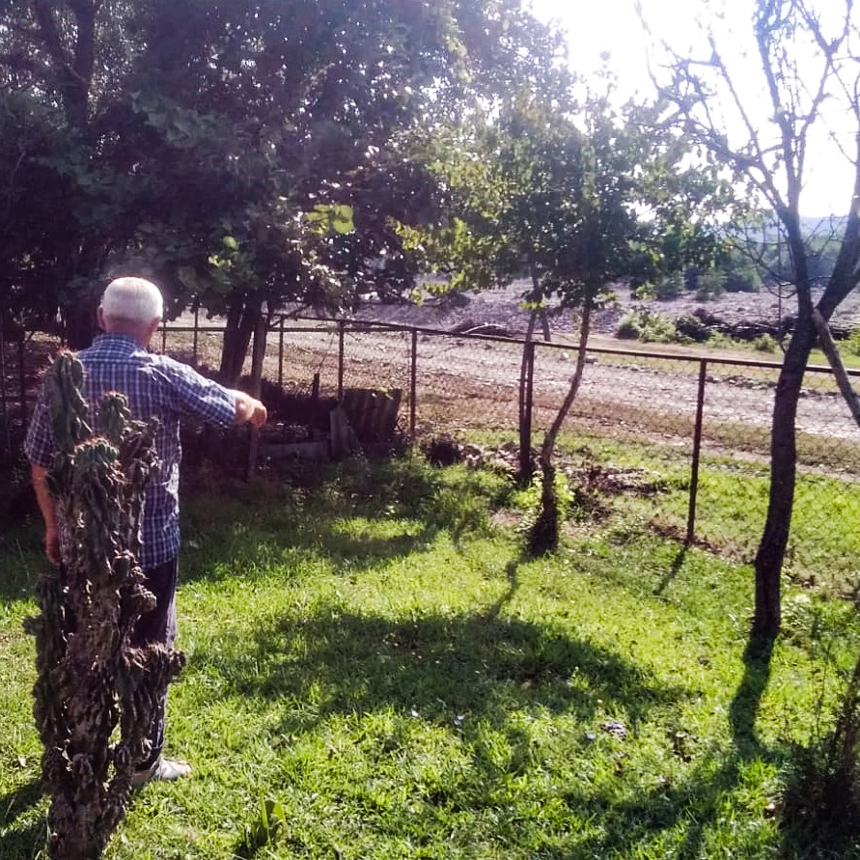
Tamaz Gazashvili
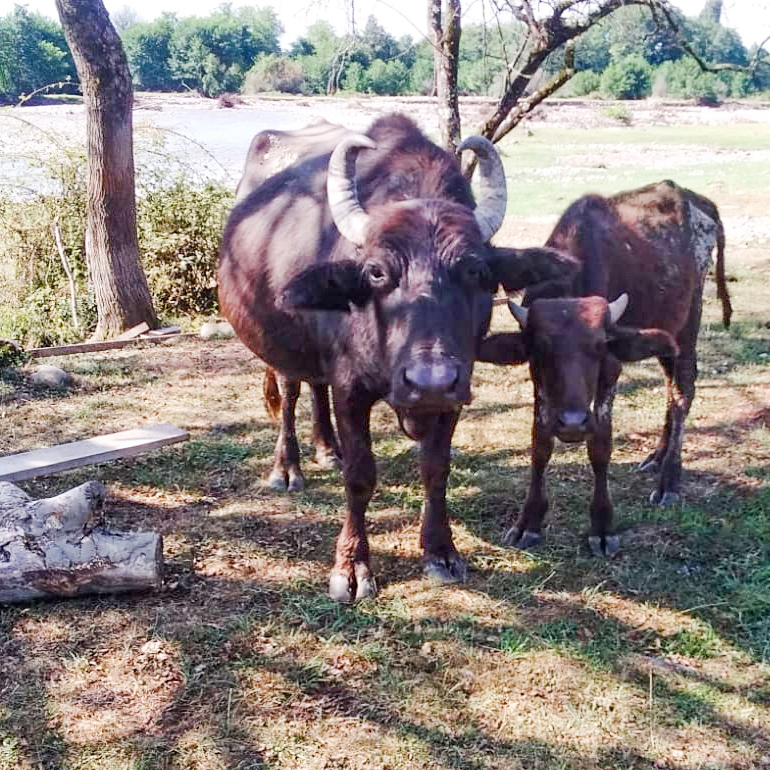
Tamaz's small buffalo herd
When the river flooded in June 2023, Tamaz’s household incurred heavy losses on three fronts. Most devastingly, two of the family’s small buffalo calves were washed away in the flood. Tamaz sadly recalls the feeling of helplessness to save the calves from the swift, strong current. In one stroke, the family lost much of the milk, matsoni (yogurt), cheese and meat they rely upon to get through the winter. Now, they may not have enough for themselves, let alone surplus production to sell at the market in Gali for extra income.
The floodwaters also damaged the Gazashvilis’ walnut and feijoa orchard, so there will be no harvest this year. To make matters even worse, their family home was also flooded, requiring repairs to the house. More than two months after the floodwaters receded, the Gazashvilis are still putting their house to rights, clearing out the dried mud and silt left behind.
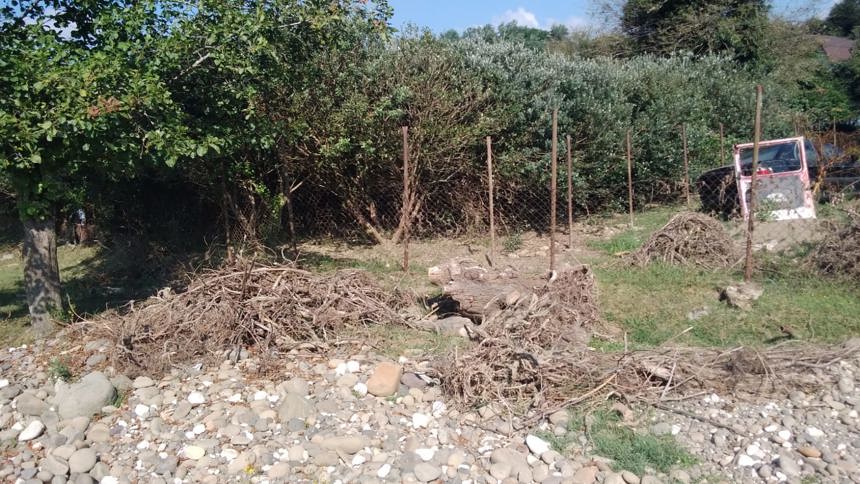
Flooding damaged the orchard
According to Tamaz, the river used to rise in the past, but not to such a high level that it would flood houses and cause such destruction. He suggests that the riverbed is changing.Fortunately, infrastructure improvements aimed at strengthening the riverbank can significantly reduce the damage from possible floods and high water levels and improve the reliability of rural residents’ access to other settlements. Tamaz hopes that the dam HALO has recently constructed under the EU4Dialogue project will help protect the entire village’s homes and livelihoods from future flooding and make travel easier and safer.
The Repair Shop
Mamuka Kakubava is a master of his craft—automotive repair. Mamuka, now 45 years old, first began repairing cars as a teenager in 1994 in his home village of Tsarche. His love for cars began with driving lessons from his father on village roads and soon progressed to a penchant for tinkering. Mamuka loved dismantling spare parts and fixing cars, and what started as a hobby became his vocation.
Thanks to long hours spent in his workshop, Mamuka supports his family with the income from his small business. He takes pride in his work and the money he earns, with which he provides a better future for his two school-age children.
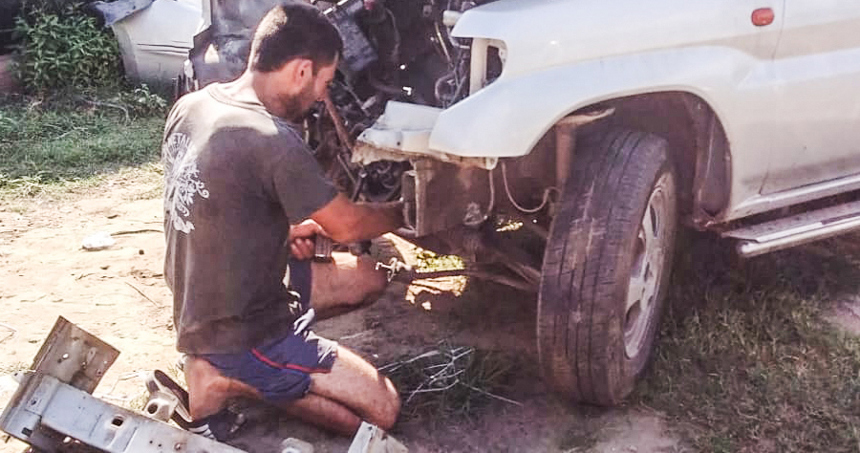
Mamuka at work on one of his customer's cars.
During the heavy rains that pummelled Tsarche in June, the river near Mamuka’s house and workshop overflowed its banks and flooded everything around him, washing out the roads and stranding residents in the village until the water levels went down. Like Tamaz, Mamuka remembers past floods, but none so strong as this year. He thinks that the flooding caused more damage this time because erosion had weakened the riverbanks.
Mamuka lost a lot of tools to this natural disaster. Many of his spare parts and expensive equipment—including a welding machine, an angle grinder and electrical tools—were ruined. Mamuka feels these losses acutely but refuses to let the setback discourage him. He and his business partner are slowly restoring what was lost, although it is very expensive to replace these specialised tools.
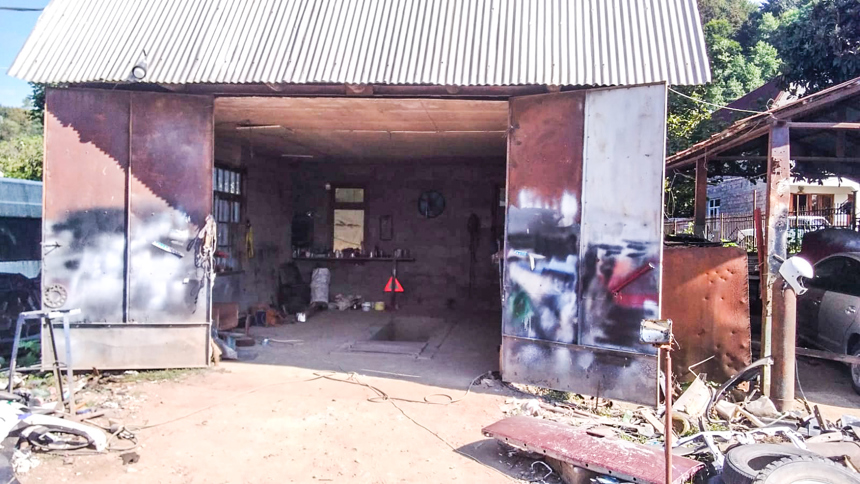
Mamuka’s garage reopened after the flooding but is still missing several essential tools.
In the past, village residents tried their own strategies to mitigate summer flooding, but they soon realised that the only solution was a major infrastructure improvement to protect the village and the road that runs along the riverbank. They hope that the newly completed Tsarche Dam under the EU4Dialogue project will prevent another severe flood from destroying residents’ livelihoods and cutting off their access to nearby towns and villages.
This story has been produced with the assistance of the European Union and United Nations Development Programme (UNDP) under the EU4Dialogue programme. Its contents are the sole responsibility of the HALO Trust and do not necessarily reflect the views of the European Union or UNDP.
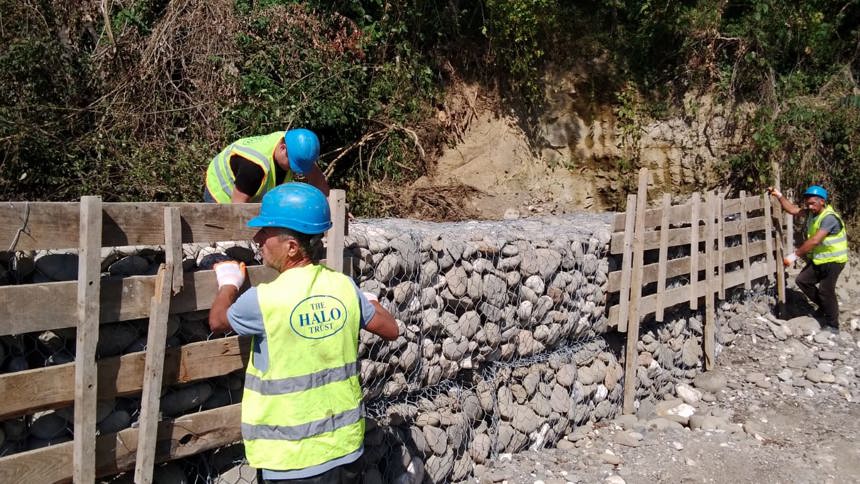
HALO staff put finishing touches on the Tsarche Dam.


